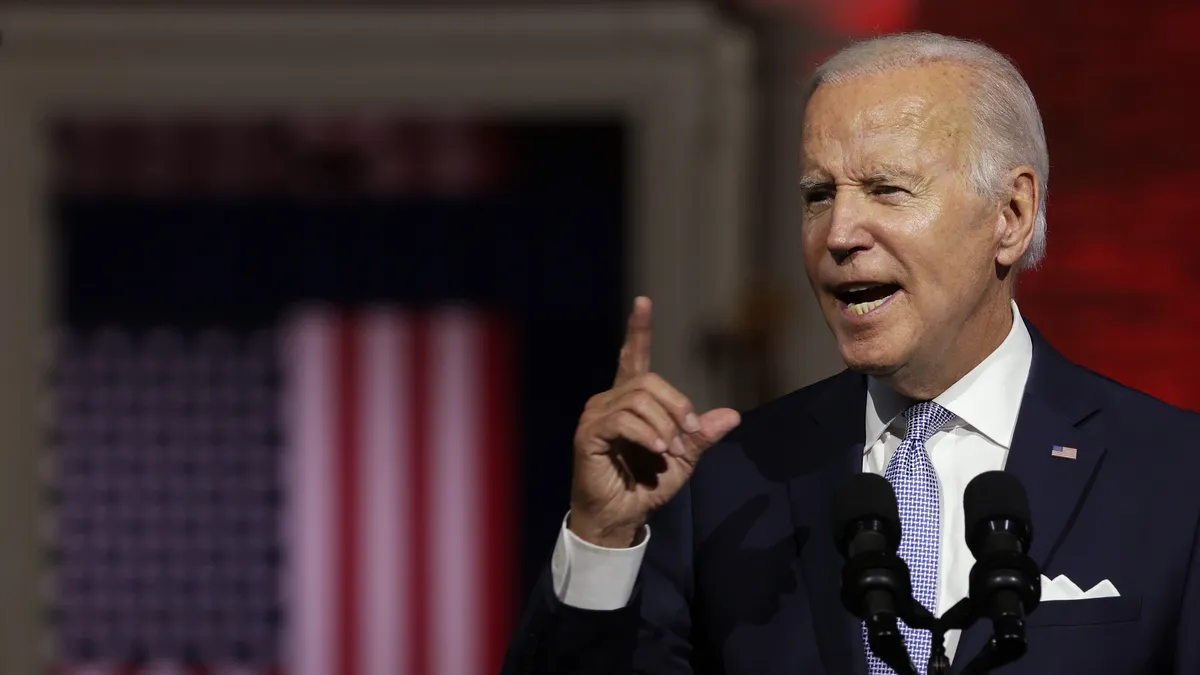The Biden administration announced a slate of tariff increases on key goods made in China on Tuesday, taking aim at electric vehicles, batteries, critical minerals, semiconductors, solar cells and more.
United States Trade Representative Katherine Tai said the USTR would keep existing Section 301 tariffs on China and also increase the import tax in strategic sectors. The White House touted the tariff modifications as a tool to better protect U.S. manufacturers against China's trade practices. The tariffs will cover $18 billion worth of imports in the clean energy and technology sectors.
The move goes after hotly contested sectors in which the U.S. is sprinting to get ahead of China's manufacturing prowess — and ones that the Biden administration has poured billions of dollars in federal funding into to bolster factory plans and talent development.
"China’s forced technology transfers and intellectual property theft have contributed to its control of 70, 80, and even 90 percent of global production for the critical inputs necessary for our technologies, infrastructure, energy, and health care — creating unacceptable risks to America’s supply chains and economic security," the White House said Tuesday.
White House tariffs go after China-made semiconductors, EVs
The action from the U.S. Trade Representative most notably increases tariffs on Chinese-produced EVs to 100% this year, up from 25%. It's meant to protect the U.S. market from the rise in Chinese EV exports to the country, which the U.S. says jumped 70% from 2022 to 2023.
The tariff rate for semiconductors, solar cells and syringes and needles will also jump, up to 50% in 2024.
On critical minerals, a space in which China controls the majority of global supply chains and many key mining sites both in the country and abroad, the Biden administration will place 25% tariffs on natural graphite and permanent magnets that will take effect in 2026. Other critical mineral tariffs would reach 25% this year.
"Concentration of critical minerals mining and refining capacity in China leaves our supply chains vulnerable and our national security and clean energy goals at risk,” the White House said.
The Biden administration has pushed for companies to onshore not only EV and battery manufacturing, but to bring supply chains for lithium, graphite and other critical minerals closer to home and out of China.
The Inflation Reduction Act and its domestic sourcing requirements have been a key way to do so by limiting the amount of battery components and raw materials that can be procured from “foreign entities of concern,” including China.
China's Ministry of Commerce immediately pushed back against the tariffs. “The United States should immediately correct its wrongdoing and cancel the additional tariffs imposed on China,” the Ministry said in a translated statement. “China will take resolute measures to defend its rights and interests.”
As part of the tariff plan, Tai will craft an exclusion process for certain machinery used in domestic manufacturing, including 19 exclusions for certain solar manufacturing equipment.
A comment period for the proposed modifications and information regarding an exclusion process is set to open next week.
















